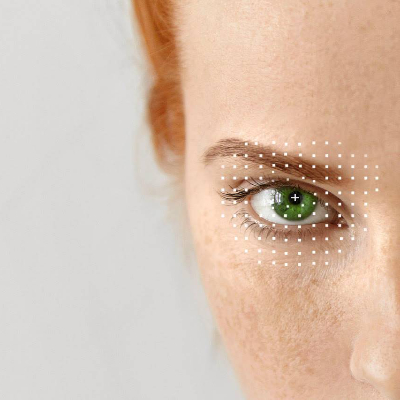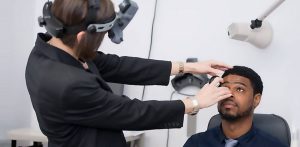Are your daily habits potentially damaging your eyes?
Eye health isn’t just about going for a yearly eye exam. Certain actions you take, or don’t take, can also have negative effects on the health of your eyes and vision. Here’s a list of 15 things you may be doing that could put your eyes at risk of vision loss or eye disease.
Before changing any of your habits, contact an eye doctor near you to make sure they are right for you and your overall health.
SEE RELATED: Top 4 Tips to Relax your Eyes
1. Smoking
While we all know that smoking can cause heart disease and cancer, not everyone realizes it can affect the eyes as well.
Smoking can lead to irreversible vision loss by significantly increasing the risk of developing cataracts, glaucoma, diabetic retinopathy and macular degeneration. It can also cause dry eye syndrome.
2. Not wearing sunglasses
Exposing your eyes to the sun’s harmful UV rays can damage the eye’s lens and cornea. Overexposure to UV radiation can also lead to cataracts and even eye cancer. Wearing 100% UV-blocking sunglasses while outdoors is important, all year long.
3. Not wearing protective eyewear
Wearing protective glasses or goggles while working with potentially sharp or fast-moving fragments, particles or objects (i.e. cutting glass, welding, wood working) and certain sports is crucial to protect your eyes against injury.
In fact, 90% of all eye injuries could have been prevented by wearing protective eyewear.
4. Not washing your hands correctly
To reduce the possibility of viruses or bacteria entering the eye, frequently washing your hands is the first line of defense.
Pink eye (conjunctivitis) and corneal ulcers are common eye conditions that can be caused by viruses, fungi, parasites or bacteria.
Be sure to use warm water, soap, and thoroughly wash in between each finger and over the entire palm area. If you plan to insert or remove your contact lenses, wash and then dry your hands completely with a paper towel or lint-free cloth.
5. Buying decorative contact lenses
While ordering decorative lenses without first visiting your optometrist may seem more convenient, the risks of doing so in the long run aren’t worth it.
Unlicensed manufacturers of decorative contact lenses are known to use low-quality or harmful products that can be absorbed into the bloodstream through the eyes. They also may contain high levels of microorganisms from unsanitary storage and packaging conditions.
6. Overwearing contact lenses
Wearing contact lenses for longer than recommended can cause eyelid swelling, conjunctivitis, corneal inflammation (keratitis) and contact lens intolerance.
Always wear your lenses for the recommended amount of time, as directed by your optometrist.
7. Not cleaning your contacts properly
Maintaining the highest degree of contact lens hygiene is important if you wear contact lenses that need to be replaced every two weeks or once a month.
Optometrists will warn you that an eye infection caused by improperly cleaned or stored contact lenses is a common reason for patients to see them. Some patients use their contact lens cases for an extended period of time, which can irritate their eyes. Follow your eye doctor’s directions on how to clean, store, and treat your contact lenses to prevent eye infections.
8. Showering or swimming with contact lenses
Tap water and swimming pools contain a considerable amount of bacteria. As a result, it’s important that water and contact lenses don’t mix.
It might be worthwhile to invest in a pair of prescription swimming goggles if you need vision correction while swimming.
9. Sleeping with makeup on
Sleeping with mascara or eyeliner on, you run the risk of the makeup entering the eye and damaging the cornea.
Wearing mascara while sleeping can introduce harmful bacteria to the eye and cause an infection. Shimmery eyeshadow and abrasive glitters can scratch the cornea as well. Be careful to remove all makeup with an eye-safe makeup remover before going to bed.
10. Using non-FDA approved products
Whether it’s eye makeup, eyelash growth serums, or eyebrow enhancers, always choose products that have been FDA approved and/or meet government safety regulations.
Non-approved products have been known to cause allergic reactions and infections in or around the eye area.
11. Being nutrient deficient
Poor nutrition can damage the visual system permanently. Consume plenty of nutrient-rich fruits and vegetables, as well as enough Omega-3. Vitamins A, C, E, lutein, zeaxanthin, and zinc are among the best vitamins and nutrients for eye health.
12. Not following medication instructions
When it comes to eye disease, it’s important to stick to a medication’s instructions. If you forget to put eye drops in or use the wrong dose, you may significantly reduce the efficacy of your medication or even cause damage.
If you’re unsure about when or how to take your medication, contact an eye doctor near you.
13. Not taking a holistic approach
Ignoring health conditions you may have, like elevated blood sugar or high blood pressure, can pose serious risks to your eyes.
14. Using unsafe home remedies
Many people mistakenly believe that if something is “natural,” it’s safe. Home remedies, like using breastmilk to cure pink eye, could introduce harmful bacteria to the eye and cause infection.
15. Skipping your recommended eye exam
Your eye doctor will tell you how often you should have your eyes examined. Adults should have a thorough eye exam at least once a year to assess if their prescription is up to date and to monitor for the early stages of eye disease.
Early detection of eye conditions increases the likelihood of effective treatment and the preservation of healthy vision.
LEARN MORE: Guide to Eye Health
Schedule an eye exam with an eye doctor near you to maintain healthy eyes and vision.









